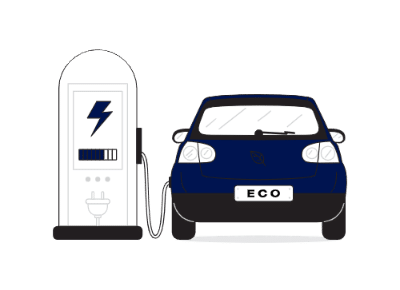Volvo Vs. BMW Reliability: Which Is Better?
August 18, 2022
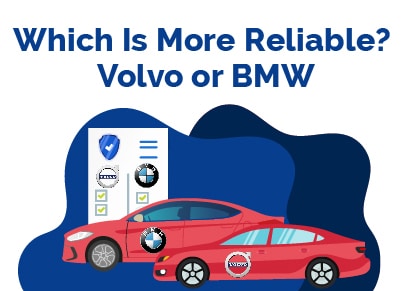

I am a serial entrepreneur and a consumer advocate. When I’m not helping car buyers, I love working on ventures that have a positive impact.
I run a cause marketing agency and serve on the board of Vayu Global Health where we are disrupting the medical industry and preventing the needless deaths of mothers and babies during childbirth.
No doubt, Volvo is a reliable brand! While BMWs are lightweight cars with fantastic performance.
Nonetheless, Volvo is more reliable than BMW.
Volvo offers better mileage, comfort, and lower cost of maintenance. While BMWs tend to wear off after extensive use.
Let’s learn more about Volvo vs. BMW and why Volvo is considered more reliable.
Table of Contents
- Volvo Vs. BMW Reliability: Detailed Comparison
- Which Is the Best Car: Volvo or BMW?
- Volvo Vs. BMW Reliability: Design
- Volvo Vs. BMW: Repairs and Maintenance Cost
- Volvo Vs. BMW Reliability: Durability
- Volvo Vs. BMW Reliability: Engine
- Volvo Vs. BMW Reliability: Gas Mileage
- Volvo Vs. BMW: Technology
- Volvo Vs. BMW Reliability: Safety
- Current Volvo & BMW Deals & Incentives
- Final Verdict
- Car Research & Comparisons
- Frequently Asked Questions
Volvo Vs. BMW Reliability: Detailed Comparison
| Features | Volvo | BMW |
| Repairs and Maintenance Cost | ||
| Durability | ||
| Technology | ||
| Safety |
Which Is the Best Car: Volvo or BMW?
Volvo and BMW are amazing brands with impressive products in the market. It wouldn’t be fair to place one above the other because they serve different purposes.
Volvo produces fewer race cars compared to BMW. This is because BMWs are lightweight, aggressive, and faster.
However, Volvo is a safety-first car with more preferences for reliability and durability. There are Volvos with a life span of 30-40 years old. I can’t say the same for BMW.
Volvo has a reliability rating of 3.5 out of 5.0 and scored 17th out of 32 car brands, according to RepairPal. BMW has a reliability rating of 2.5 out of 5.0.
BMWs, just as their brand slogan states, are just for the “sheer pleasure of driving.” If you need something well-made, sporty, classy, comfortable, and performance, then you should choose BMWs.
If safety is your primary concern and you need a car that lasts decades, you should go for Volvo.
Volvo Vs. BMW Reliability: Design
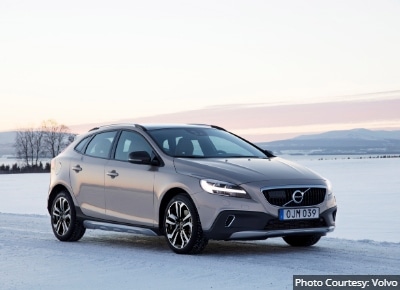 Volvo produces electric, gasoline, and hybrid cars, just like BMWs. Volvo allows users to build their vehicles to meet their specificity. With options for interiors, wheels, color, powertrain, and additional accessories for your car, you take charge of deciding how the car looks.
Volvo produces electric, gasoline, and hybrid cars, just like BMWs. Volvo allows users to build their vehicles to meet their specificity. With options for interiors, wheels, color, powertrain, and additional accessories for your car, you take charge of deciding how the car looks.
BMW allows users to request a test drive of any car of their choice.
One of the peculiar differences between Volvo and BMWs is that Volvo’s design maintains a rugged structure more than that of BMW. BMWs are lighter, and this impacts their impressive speed and performance.
It is easier to rely on Volvos because they look like they are made from rocks. Strong bodies are good safety indicators. BMWs provide a wild surge of horsepower and excellent engine strength, but the design lacks durability.
BMW’s parts tend to wear out the longer you drive them. If you wouldn’t mind driving a heavier vehicle with a reliable design that ensures your safety and the durability of the car, then you should go for Volvo.
Winner: Volvo
Volvo Vs. BMW: Repairs and Maintenance Cost
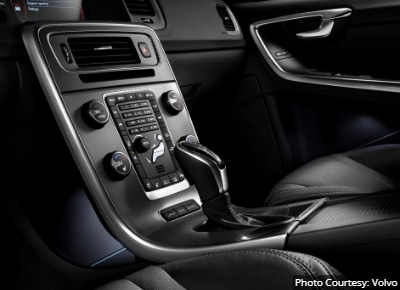 Is Volvo cheaper to maintain than BMW? Yes. It is cheaper to maintain a Volvo than a BMW. The annual Volvo repair and maintenance cost ranges from $750 to $800.
Is Volvo cheaper to maintain than BMW? Yes. It is cheaper to maintain a Volvo than a BMW. The annual Volvo repair and maintenance cost ranges from $750 to $800.
This is cheaper than BMW, which has annual maintenance of $950 to $1800 per year. BMWs are one of the most expensive cars to maintain.
One of the advantages that you will have with Volvos is that they hardly break down. Just like every other car, Volvos have their common problems, but they are few and do not frequently occur.
The lightweight design of BMW makes them look fragile. With the rear-view mirror falling off, AC faults, battery issues, doors, and handles, you will visit the technician frequently.
Winner: Volvo
Volvo Vs. BMW Reliability: Durability
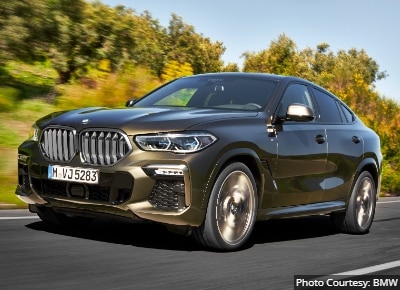 When it comes to durability, Volvos are better than BMW. Volvos last up to 200,000 to 250,000 miles with 20-25 years of extensive use. This is an impressive durability frame because BMW lasts for just 10 –to15 years and 100,000 to 150,000 miles with constant repairs and maintenance.
When it comes to durability, Volvos are better than BMW. Volvos last up to 200,000 to 250,000 miles with 20-25 years of extensive use. This is an impressive durability frame because BMW lasts for just 10 –to15 years and 100,000 to 150,000 miles with constant repairs and maintenance.
BMWs don’t last long, and they depreciate fast. This is the case with a lot of luxury cars.
BMW spends much more time working on the flashy aspects than improving their car's overall structure. They use expensive parts that do not last more than five years.
The consistent minor repairs will add up expenses, reducing the car's longevity. Volvo lasts so long because they are designed with high-quality materials that might not deliver a wild burst of power as BMWs will but will deliver enough strength to get you through extra miles.
Winner: Volvo
Volvo Vs. BMW Reliability: Engine
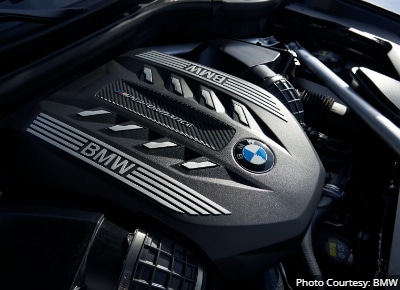 BMW cars are known for their fast speeds and fantastic performance. It is not surprising that they beat Volvo engines in torque and horsepower.
BMW cars are known for their fast speeds and fantastic performance. It is not surprising that they beat Volvo engines in torque and horsepower.
This comparison is based on different models of both cars. In 2021, BMW manufactured a lot of vehicles, just as Volvo did. BWM got the 021 BMW X5, X3, X1, X6, 5 series, and lots more. Volvo got the 2021 Volvo XC40, XC60, XC90, S90, and lots more.
2021 Volvo Xc90 has a 2.0L inline 4 cylinder delivering 316 horsepower (HP). This is lower than the 2021 BMW X5 with a turbocharged 3.0L inline 6 and delivers 335 - 389 HP. BMW keeps beating Volvo across all models with better delivery of horsepower.
Winner: BMW
Volvo Vs. BMW Reliability: Gas Mileage
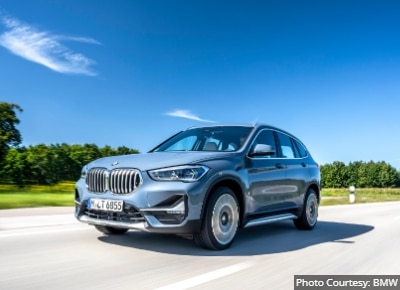 It always ends in a tie when you try comparing Volvo and BWM’s gas mileage. Both cars provide impressive fuel economy, and the comparison will depend significantly on the models compared.
It always ends in a tie when you try comparing Volvo and BWM’s gas mileage. Both cars provide impressive fuel economy, and the comparison will depend significantly on the models compared.
For instance, The BMW X3 has improved gas mileage with a better fuel economy than Volvo XC60. On the other hand, Volvo XC90 performs better than BMW X5 on gas mileage. Both cars have excellent fuel efficiency; it all boils down to your choice.
Winner: Both
Volvo Vs. BMW: Technology
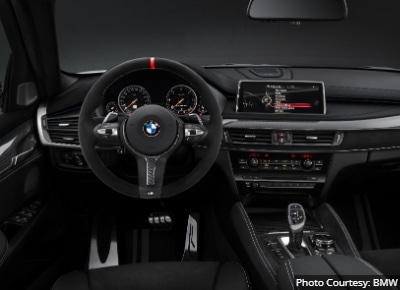 Technological preferences vary for all car users. But, it is essential to note that Volvo is becoming a tech superpower in the automobile industry.
Technological preferences vary for all car users. But, it is essential to note that Volvo is becoming a tech superpower in the automobile industry.
They invest heavily in the efficiency and convenience of their cars. This does not rule out BMWs as less innovative brands.
Both cars have safety technologies, traffic control, and autonomy that you can rely on. Just as there is sensor navigation with Apple Carplay and Android Auto on Volvo, there is a smartphone integration system with Apple CarPlay and Android Auto on BMW.
There are car apps for both cars and improved remote options.
Winner: Both
Volvo Vs. BMW Reliability: Safety
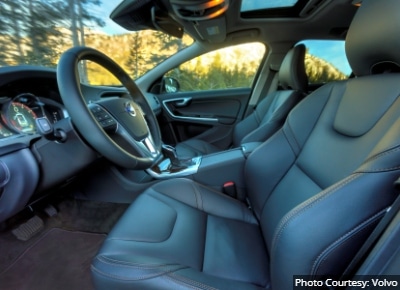 Both brands equip their cars with safety features. BMW cars come with active protection systems, frontal collision warning backed with a city collision mitigation, active blind-spot detection, rear cross-traffic alert, emergency call assist (ECALL), parking assistant with surround-view cameras, and lots more.
Both brands equip their cars with safety features. BMW cars come with active protection systems, frontal collision warning backed with a city collision mitigation, active blind-spot detection, rear cross-traffic alert, emergency call assist (ECALL), parking assistant with surround-view cameras, and lots more.
Volvo offers lane-keeping aid, blind spot information systems, active high beam control, BLIS steer assist, side-impact protection system, city safety, and lots more.
Although the safety features in both cars are not vastly different, Volvo is much safer than BMW. The rugged design and the use of ultra-high-strength boron steel make Volvo not just safer than BMWs but one of the safest cars in the world.
Winner: Volvo
Current Volvo & BMW Deals & Incentives
Check out this month's Volvo and BMW deals.
Final Verdict
We’ve proven that Volvos are more reliable than BMWs. Although BMW beats Volvo on performance, you must understand that you choose vehicles according to your needs and budget.
We believe this review will guide you to make good decisions!
Frequently Asked Questions
Are Volvos as good as they used to be?
Yes. Volvo has remained a premium car brand, manufacturing some of the best cars on the road. They’ve improved by exploring hybrid and electric vehicles while maintaining the standard of their durability and reliability.
Is BMW's reliability getting better?
Yes. BMW is rising through the ranks and getting better in its reliability and durability. According to the Consumer Reports 2021 survey, they increased by five places. The increase is a result of the recent upgrades in structure and technology of their recent cars.
Does Volvo need premium gas?
Yes. It is recommended to use premium gas on your Volvo. And not just any type of gas, premium 91 octane, or any fuel with greater performance. The regular 87 unleaded octane will work well on your Volvo engine, but the fuel must have up to 10% ethanol.
What happens if you don’t put premium gas in a BMW?
It is also recommended to use premium gas on your BMW. But so far, there is no proof that using non-premium gas in a BMW will harm the car. Using regular gas will prompt your car’s engine control unit (ECU) to adjust its engine timing and performance for compatibility with the regular fuel.
Posted in Car Buying Tips, Car Troubleshooting |


